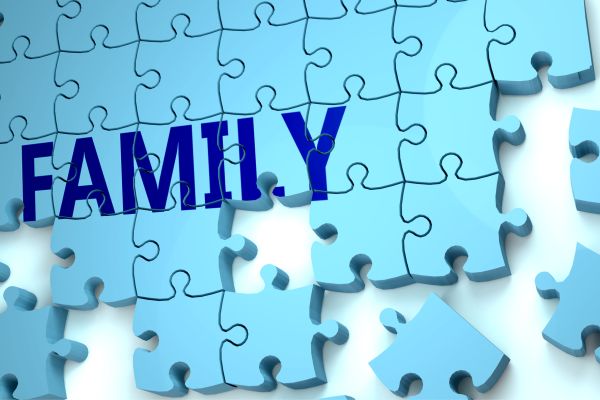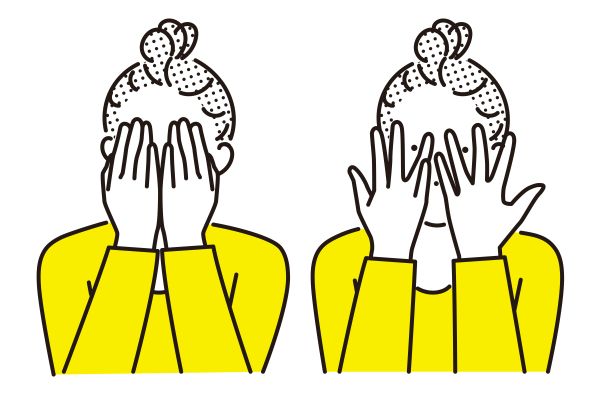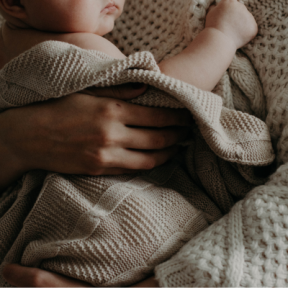Raising an Adopted Child
Every adopted child is unique and has the potential to flourish in a loving home. However, because of the nature of adoption, there are several potential challenges that many adoptive parents will need to be prepared to confront. These include the aftereffects of trauma or neglect, feelings of abandonment, questions of identity, and social and emotional challenges related to race.
On the other hand, it’s important for parents to remember that not every problem, whether physical or mental, can be directly traced to a child’s adoption. Focusing on the whole of the child’s life and needs, rather than assuming adoption is behind every negative behavior, is the best way to address challenges and promote overall well-being.
Some children who have been adopted, though not all, may experience psychological, neurological, social, medical, or behavioral problems unique to their individual situation. These potential problems, which can develop at any age, include bonding, attachment, relationship issues, cognitive delays, ADHD, defiance, and matters related to identity formation.
These problems may be due to separation from birth parents, trauma, stigmatization, cultural changes, environmental issues such as malnutrition or lead poisoning, or biological family history, including alcoholism or drug abuse. Since it is not always possible to obtain records of an adopted child’s medical history, there may be unforeseen physical health matters to address.
Adoption will not necessarily have negative effects on every adopted child. Some children, however, may experience negative emotional or psychological symptoms as a result of their adoption.
For starters, adopted children may struggle with feeling rejected by their birth family and/or like they don’t fit into their adoptive family; such feelings can be painful for children and parents alike, and may trigger negative behaviors as the child attempts to reconcile these emotions.
Adoptees, particularly those adopted at an older age, may have endured trauma, abuse, or neglect. Such children may be distrusting of adults and may struggle to bond with their adoptive family as a result. They may also present with emotional or behavioral challenges as they attempt to cope with their difficult past. Seeking help for traumatized children—and trying to see frustrating behaviors through a lens of trauma, rather than one of deliberate disobedience—can help parents put their child on a path to improved psychological health.
Evidence shows that the majority of adoptees are in the normal range of behavioral and emotional adjustment. However, evidence does suggest that adoptees may be more likely than non-adopted children to be diagnosed with mental health disorders, including depression, ADHD, and addiction.
Though the exact causes for this disparity continue to be investigated—and likely differ from adoptee to adoptee—it’s likely that a combination of genetic vulnerability, past trauma, feelings of rejection, and identity crises may be responsible for the increased risk of mental health disorders seen among adopted children.
It’s not always possible to pinpoint the exact cause of problematic behaviors in children, adopted or not. Some adoptees may have experienced neglect or abuse early in life, which can result in later behavioral issues. Other adoptees may feel confused about their identity and act out as a result. Some mental health disorders that can be related to behavior challenges—such as ADHD or autism—have a genetic element, and it is possible that a child is genetically predisposed to these disorders.
It’s also critical to note, however, that many non-adopted children misbehave, too; thus, a child’s challenging behaviors may be wholly unrelated to adoption.
Older children often lived in foster care or an orphanage (if adopted internationally) before being adopted. There is a strong possibility in these settings for a child to have experienced trauma or neglect; as a result, they may be deeply distrusting of adults, may struggle to attach to their new family, or may behave in ways that can be confusing, upsetting, or even frightening. Children may have also experienced trauma in their family of origin before being placed for adoption.
Older children may have lived in multiple prior homes, which may have given them a heightened fear of abandonment. This may manifest as disinterest or distrust in their new family. On the flip side, some children who fear abandonment may be too trusting of any adult, never having bonded closely with any specific one. This tendency can result in unsafe behaviors if left unaddressed.
Though it is of course possible for an adopted newborn to have special needs, the nature of the adoption process means that older children are more likely to have physical or mental disabilities—or behavioral challenges such as conduct disorder—that require significant care. Though most reputable agencies will let prospective parents know in advance whether their child has special needs—and allow parents to decide beforehand whether they are prepared to care for any particular child—some challenges may not become apparent until the child is in his or her new home.
Parents should make an effort to learn as much as possible about their child’s history before the adoption, in order to better prepare themselves for their child’s specific needs. In cases where this is not possible, educating themselves about trauma, childhood mental health, and the possible effects of foster or institutionalized care can help parents get a better sense of what to expect.
Adoptees—particularly those adopted at an older age—may be slow to bond with their family for a number of reasons. Children who have experienced trauma or abandonment may see their adoptive parents as untrustworthy or may assume that they too will leave the child behind; unfortunately, many foster children or those adopted internationally were previously placed in homes that they thought would be permanent but turned out not to be.
Many, if not most, adoptees eventually bond with their families. However, the process takes time (and in some cases, professional help) and requires the careful building of trust. Self-education about bonding and attachment can help parents feel more secure, be patient with themselves and their child, and learn to trust the process. However, if bonding happens slowly, it can be extremely emotionally taxing for parents and children alike. Parents should make sure they have their own support system of friends, family, and community members lined up, while also making sure they get their child the help and social support she needs to thrive.
The term “post-adoption depression” refers to the onset of depressive symptoms in adoptive parents shortly after adopting a child. Though it is much less well-known, it is conceptually similar to postpartum depression and has many of the same psychological symptoms. Parents may question their own legitimacy as a parent, for instance, or worry that they will not bond with their child; these feelings can contribute to symptoms like sadness, lethargy, sleeplessness, anxiety, or guilt.
Post-adoption depression can affect mothers, fathers, and single parents—and while it is possible for it to resolve on its own, it can also be quite serious and long-lasting. Any adoptive parent who experiences depressive symptoms for longer than two weeks should not hesitate to seek professional help.
Adopted children may be of a different race, ethnicity, or cultural background than their adoptive families. While many families consider these differences something to be celebrated, they can also create barriers between parent and child that will require dedicated effort (particularly on the part of the parents) to overcome.
In the U.S., most adoptive parents are white; many adopted children are not. When parent(s) and child are of different races—a situation known as transracial adoption—it’s imperative that the situation be discussed openly and honestly. Attempting to gloss over differences, or act as if they don’t exist, will likely only result in distance between family members.
Since race can be a visible indicator that a child was adopted, transracial adoptees may feel acutely as if they don’t “fit in” with their family, which can aggravate the questions of identity that affect many adoptees. Strangers (or even loved ones) may further exacerbate this feeling by making rude or incorrect comments about the family or about adoption.
Adoptees of color may also experience racism or microaggressions in their adoptive community, particularly if few other people of their race or ethnicity live there. Living in a predominantly white community may also make them more likely to feel disconnected from their racial or ethnic group; some may question whether they can rightfully self-identify with their race or ethnicity if they have white parents.
A major challenge of transracial adoption is related to adoptive parents’ frequent discomfort with talking about race. If a child learns that race is an “impolite” subject to bring up, he may feel pressured to keep his race-related questions and problems to himself. Feeling unable to talk to their adoptive parents about race can create further identity challenges and may make adoptees feel isolated in their own homes.
Absolutely. Adoptive parents—particularly white ones—may struggle to navigate conversations about their child’s race or openly discuss how race is viewed by society at large. But avoiding the subject altogether, or acting as if conversations about race are somehow improper, can have serious negative effects on children.
Many adult transracial adoptees report that their parents refused to talk about race at all; others adopted a “colorblind” approach and taught their children that race did not matter, despite the child’s lived experience to the contrary. Either approach can result in the child feeling shame or confusion about their racial background, or even resentment toward their adoptive parents later on.
There are many books and online resources that can help parents (adoptive or otherwise) talk to their children about race in honest, productive ways. Parents, especially if they are white, may want to acknowledge that they may make mistakes when discussing race with their child and may not always say the “right” thing. It is important to realize that such mistakes tend to be trivial in the grand scheme.
Letting a child know that it’s okay to talk about race—and taking her race-related concerns seriously when she brings them to her parents—will help her develop into a secure adult, better able to synthesize both her race and her adoptive status into her identity.














